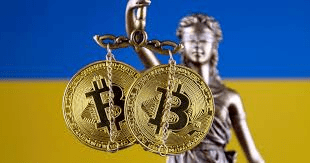Imagine you are buying a new smartphone. At the checkout, next to the usual options of 'cash' or 'card', you see another one — 'payment in cryptocurrency'. In 2025, this is already a reality in Ukraine. More and more stores, from electronics giants to cozy cafes, allow you to pay with digital money. Let’s figure out how it works and where exactly you can spend your bitcoins.
If you have decided to try paying in cryptocurrency but do not yet have digital assets, one of the best ways to acquire them is to use a reliable crypto exchange. For example, the service 1654.exchange offers a simple and convenient way to exchange hryvnias for the cryptocurrency you need.
Where can you spend your digital money?
The list of companies accepting cryptocurrency is constantly growing. The geography of crypto payments in Ukraine is impressive. You can start your day with coffee paid for in cryptocurrency, refuel your car on the way to work, order pizza delivery in the evening, and buy a new TV on the weekend — all with digital assets. The electronics and gadgets sector is leading, which is not surprising, as its customers are most interested in technology. But other industries are also catching up.
Here are just a few examples:
Technique and electronics: 'Foxtrot', 'Techno Yizhak', 'Stylus', 'Yabluka' and many other stores.
Fuel: WOG gas station network.
Furniture and home goods: 'Mebli OK' (Mebelok).
Clothing and accessories: Luxury brand store 'Sanahunt'.
Health: ANC pharmacy network.
Services: Even some law firms and IT companies accept payments in cryptocurrency.
What makes it attractive:
Wide selection: You can purchase not only the most popular coins like Bitcoin, Ethereum or USDT, but also many other, less common tokens upon request.
Confidentiality: For most transactions, you do not need to disclose personal data — just provide your cryptocurrency wallet address. Minimal information may only be required when exchanging through banking systems.
Speed: Exchange to a card of a Ukrainian bank (Privat24, monobank) usually takes from a few minutes to an hour. International transfers within Europe (SEPA) can be either instant or take up to 24 hours.
Profitable and fair rate: The service offers a rate based on exchange data, with a minimal fee (usually 0.5−1%). Importantly, the rate is fixed at the moment of the transaction, so you are protected from sudden market fluctuations during the operation.
It is convenient to follow current exchange rates and news in the crypto world on the Telegram channel of the service 1654.exchange
Can cryptocurrency be blocked?
In the world of blockchain, there is a myth of absolute immutability and invulnerability of assets, where 'code is law'. However, reality is much more complex, and in this decentralized fortress, there are many hidden doors and levers of influence capable of stopping the flow of funds.
The first level of control belongs to the creators of stablecoins like USDT and USDC. Their issuers retain 'administrative keys' — the right of last word, which allows them to freeze tokens at any address. In an instant, assets in such a wallet lose the ability to be transferred.
Centralized exchanges and custodial wallets also have similar powers. Being regulated organizations, they are obliged to comply with requests from law enforcement agencies or act according to their own rules, blocking accounts and withdrawals. For the user, this means that their 'transfers' within the exchange are just lines in an internal database that can be easily rolled back or blocked.
Even in decentralized systems, there are control mechanisms. Some networks and applications using upgradable smart contracts have built-in administrative functions or a 'pause mode' that allow developers to restrict operations.
The blockchain itself, though rarely, can undergo reorganization. This is similar to a short-term rewriting of history, when recently confirmed transactions suddenly 'disappear' from the chain. And for still unconfirmed payments in the Bitcoin network, there is a Replace-By-Fee (RBF) function that allows the sender to effectively cancel the transaction by replacing it with a new one with a higher fee.
The most striking proof that the principle of immutability is not absolute was the Ethereum hard fork after the The DAO hack in 2016. At that time, the community agreed to a fundamental change in the state of the entire network to 'return' stolen funds. This case forever etched itself in history as a reminder: even the stone tablets of blockchain can be rewritten if there is the will of the people.
#CryptoUkraine #digitalpayments #CryptoForcoffee #BuyWithBitcoin 

